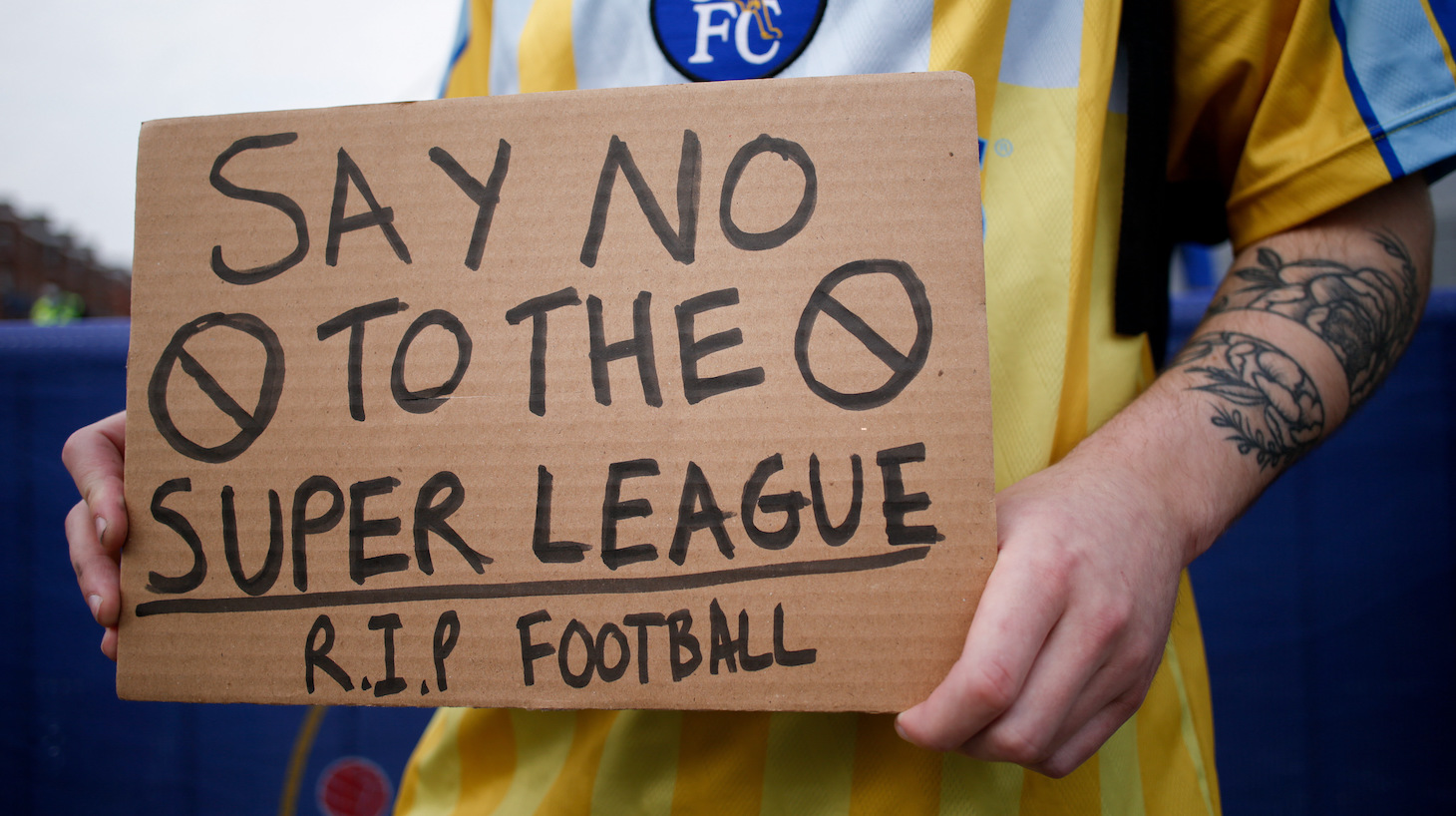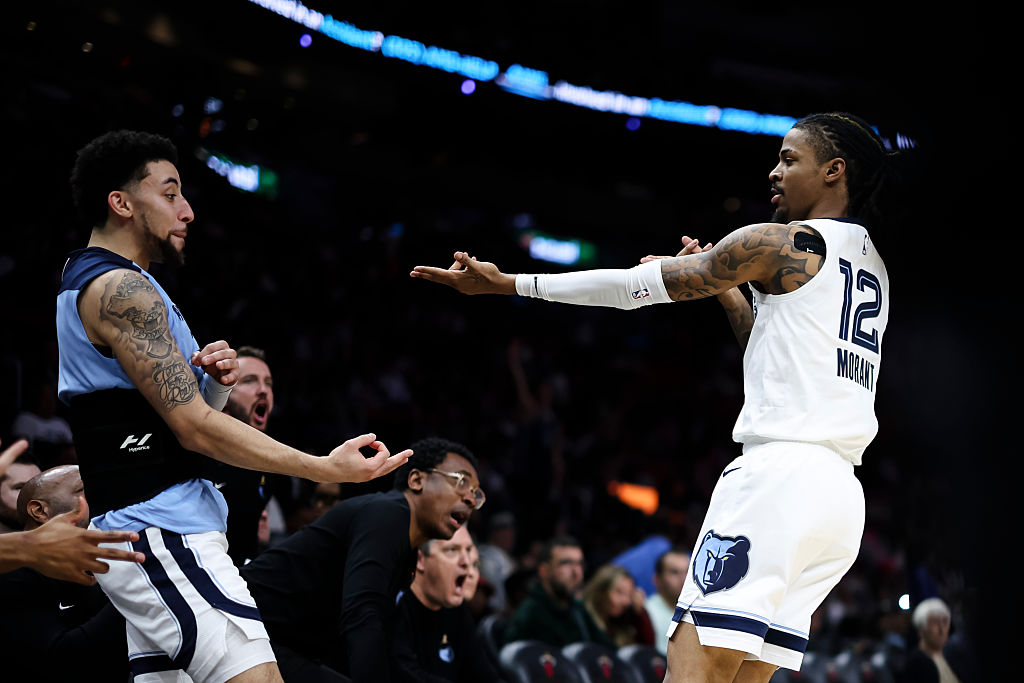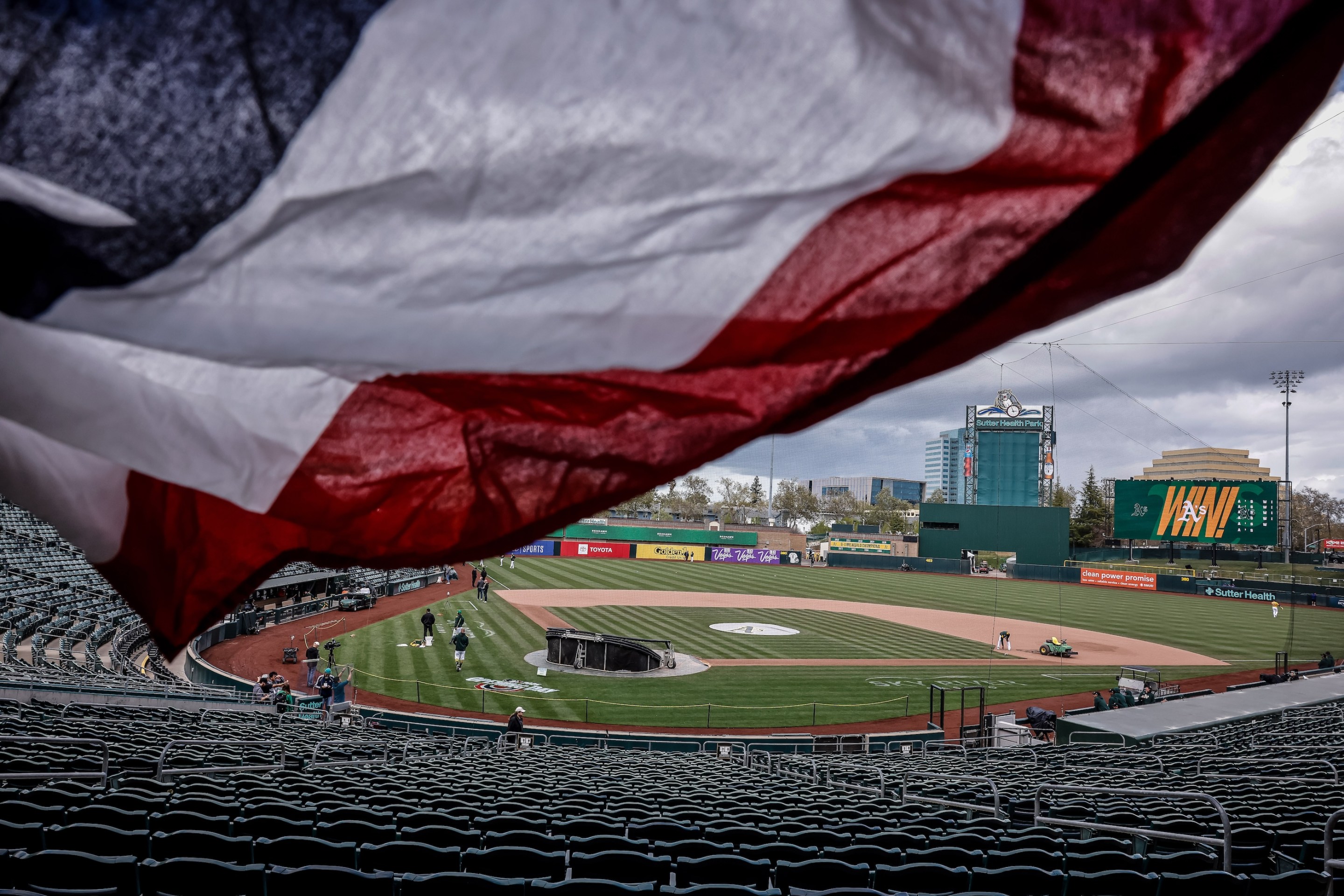The European Super League, the once mooted and unmistakably evil soccer competition that enjoyed a brief life and a delightfully righteous demise in April of 2021, appears to have clawed its way out of its grave and shambled into what can only be described as a state of undeadness.
The impetus for the Super League's new lease on quasi-life is a court ruling handed down on Thursday. The European Court of Justice held that UEFA and FIFA violated the EU's competition laws when they prohibited the possibility of the Super League from forming via a rule that required any international competition to first get prior approval from UEFA and FIFA in order to exist. It's important to note that Thursday's ruling itself does not give life to the Super League. In fact, the court upheld UEFA's and FIFA's right to regulate soccer competitions and to hold new proposed tournaments to standards that further the sport's greater interests and principles, as long as those standards are "transparent, objective, non-discriminatory and proportionate." Nevertheless, the court's decision does make it possible for the Super League, or indeed any other breakaway competition originating outside of UEFA or FIFA, to now emerge.
In light of the ruling, Super League's backers characterized the decision as a triumph. A22 Sports, the entity behind the Super League, released the new and reimagined format for the competition. Instead of the 16-team, essentially closed structure announced back in 2021, the new format would include 64 teams split between three different divisions on the men's side, and 32 teams split across two divisions in the women's game. I could go into the specifics of the new structure and why all the talk about "sporting merit" and "competition" and "openness"—the absence of those very concepts from the old format is what really inspired the immediate and zealous rage of all soccer fans the first go round—is all an illusion, but I don't think it's actually necessary. That's because, favorable ruling or not, it is my opinion that the Super League is only marginally more alive today than it has been over the past two years.
As support for my argument, I'd point to the fact that there were exactly three Super League backers publicly thumping their chests about this ostensible victory. Those three were Barcelona, Real Madrid, and A22 Sports itself. In the other direction, Thursday saw the following groups reiterate their opposition to the Super League: UEFA, FIFA, the FIFA players union, the European Club Association, the Premier League, La Liga, Serie A, and the British government. Several clubs that would likely participate in the Super League also disavowed the competition, including: Bayern Munich, Manchester United, Manchester City, Chelsea, Paris Saint-Germain, Tottenham, Atlético Madrid. Not only that, but several leagues, including the Premier League, have already passed new rules that would prevent their member clubs from joining a Super League–like competition. I'm certain that most and probably all of those clubs would change tack if they thought they could sell it to the public, the same way many of them flip-flopped on their support for the original plan due to fan pressure. But I do think the magnitude of the resistance, compared to the paltriness of the Super League's remaining support on the day of what should've been something like a crowning achievement, shows where and just how strongly the wind is blowing.
Any chance the Super League as currently conceived had of actually happening died back in 2021. The brand is thoroughly, definitively toxic. No amount of lip service to ideals like openness and sharing, when the actual structure will only further entrench soccer's existing hierarchy and widen the gap between the haves and have nots, can change that. UEFA's refusal to approve the Super League might have dealt the killing blow, but it was fan sentiment that brought it to its knees. The Court of Justice might've reanimated this particular corpse, but I'm quite confident that the weight of fans' enduring ire will keep it buried.
However, the Super League's own inauspicious prognosis should not be confused as a pure and total triumph for the forces of good. The Super League was and remains simply the logical next step along an unrelenting march toward consolidation, monopolization, oligarchy, and widening inequality. These trends date back decades in the sport, and are far from limited to soccer alone.
Almost every single facet of the current push for the Super League, down to its very name, has historical precedent. The most direct precursor to the current situation was the pressure the big European clubs, led by the late Silvio Berlusconi and his AC Milan, exerted in the late '80s and early '90s to get UEFA to change the structure of the old European Champions Cup. Berlusconi convinced many of the continent's other big boys that limiting the tournament to only the previous season's champions wasn't fair, that the straight draw and knockout-only structure risked pitting title hopefuls against each other too early in the tournament to maximize fan interest, and that UEFA wasn't squeezing enough money out of the competition and was keeping too much of that cash for itself. And so Berlusconi and his like-minded club owners and presidents conspired to plot a number of alternative formats and even breakaway competitions. None of Berlusconi's breakaway attempts got very far, but it didn't matter. UEFA eventually conceded to almost every one of his demands in order to keep him and the other big clubs happy, and thus the group stage and the seeded pots and the Champions League were born.
When looked at in historical perspective, it's clear that the enduring risk of the Super League is that the dark forces that animated it are alive and well, even if the particular husk they most recently inhabited has been rendered mostly useless. Soccer is not separate from the rest of the world. It exists in it, reflects it, is shaped by it, and shapes it. The ideas expressed by the Super League are just more examples of the same ideas and machinations you can see practically everywhere else, from other leagues and sports and industries and social institutions and in politics and everything in between. What's behind the Super League is the same thing that's behind so much of what's wrong with the world in general, and the continued unviability of this particular soccer league proposal will not alone change that.
Barcelona and Real Madrid may stand alone at the moment, but all of the clubs that once backed the Super League before, and are now putting out statements decrying it, still on a fundamental level see soccer the same way the two Spanish clubs do: as an under-maximized asset in desperate need of new methods of exploitation, to the benefit first and foremost of themselves. And even if the Court of Justice's decision won't bring the Super League itself to life, it does create the frighteningly real possibility of a new, LIV Golf–like competition that swoops in and guts what has come before.
So even if the Super League's fate is sealed, the future of the sport itself is still in the balance. The question is one of control. Will Europe's biggest and most powerful clubs be the ones who steer the game forward, toward the exact same ends that have shattered so many cultural and economic institutions the world over? Will UEFA maintain its power instead, and will it appease its most important members by giving them what they want in exchange for UEFA keeping its hands on the wheel and in the till, the way it has done in the past? Or will the legions of fans and media and smaller clubs who were truly responsible for felling the Super League the first time around realize their latent power, and start to halt and maybe even reverse the trends that threaten to spoil the sport's beauty, meaning, and importance? Thursday's decision offers no answers, instead only raising more questions while clarifying the stakes of a battle that in many respects is already being lost. But the war is not yet over.






